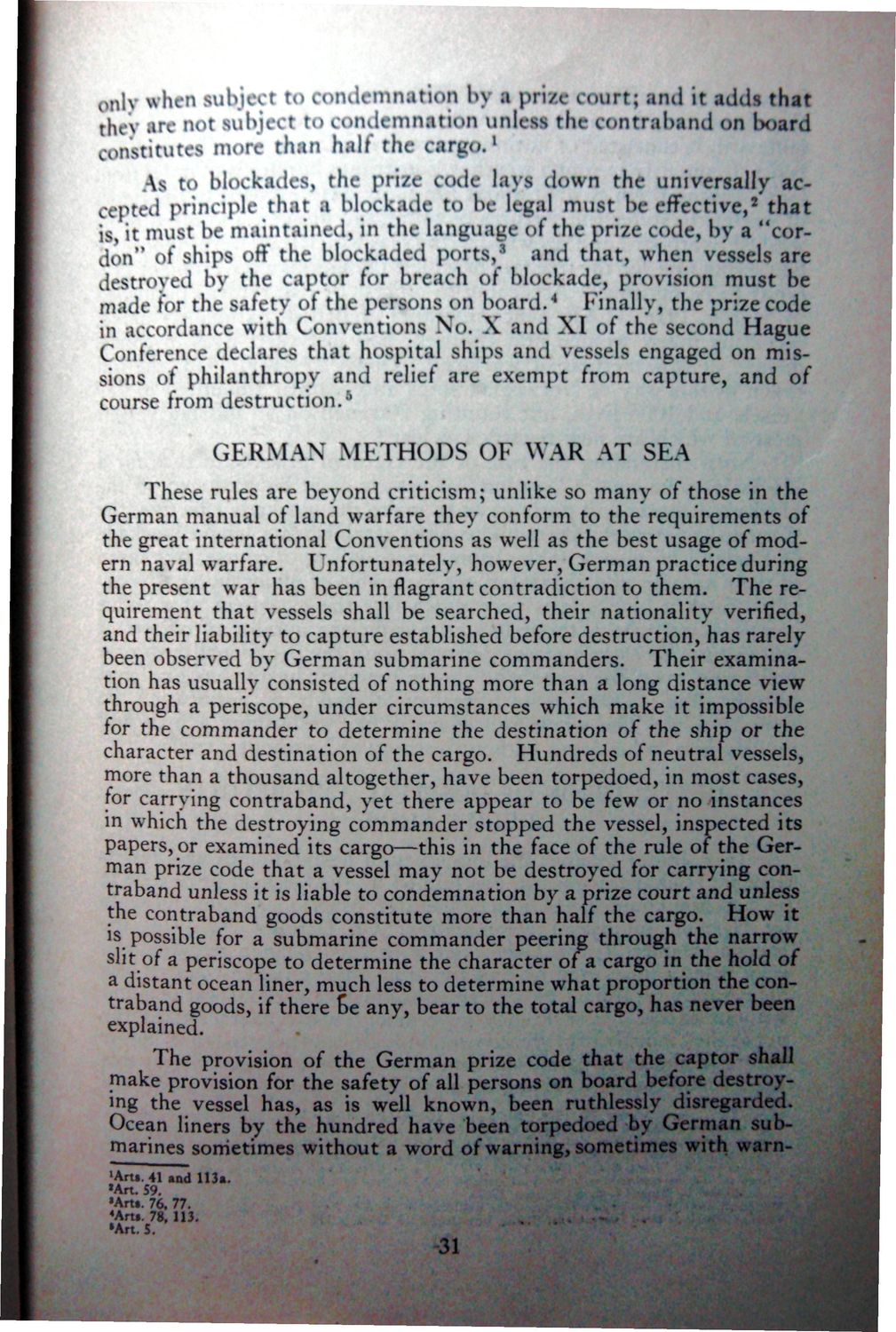| |
| |
Caption: War Publications - WWI Compilation 1923 - Article 14
This is a reduced-resolution page image for fast online browsing.

EXTRACTED TEXT FROM PAGE:
only when subject to condemnation In a prize court; and it adds that they are not subject to condemnation unless the contraband on board 1 constitutes more than half the cargo. As to blockades, tin- prize eode lays down the universally ac2 cepted principle that a blockade to be legal must be effective, that is, it must be maintained, in the language of the prize code, by a "cor3 don" of ships off the blockaded ports, and that, when vessels are destroyed by the captor for breach of blockade, provision must be 4 made for the safety of the persons on board. Finally, the prize code in accordance with Conventions No. \ and XI of the second Hague Conference declares that hospital ships and vessels engaged on missions of philanthropy and relief are exempt from capture, and of course from destruction.* GERMAN M E T H O D S OF WAR AT SEA These rules are bevond criticism: unlike so manv of those in the German manual of land warfare they conform to the requirements of the great international Conventions as well as the best usage of modern naval warfare. Unfortunately, however, German practice during the present war has been in flagrant contradiction to them. The requirement that vessels shall be searched, their nationality verified, and their liability to capture established before destruction, has rarely been observed by German submarine commanders. Their examination has usually consisted of nothing more than a long distance view through a periscope, under circumstances which make it impossible for the commander to determine the destination of the ship or the character and destination of the cargo. Hundreds of neutral vessels, more than a thousand altogether, have been torpedoed, in most cases, for carrying contraband, yet there appear to be few or no instances in which the destroying commander stopped the vessel, inspected its papers, or examined its cargo—this in the face of the rule of the German prize code that a vessel may not be destroyed for carrying contraband unless it is liable to condemnation by a prize court and unless the contraband goods constitute more than half the cargo. How it is possible for a submarine commander peering through the narrow slit of a periscope to determine the character of a cargo in the hold of a distant ocean liner, much less to determine what proportion the contraband goods, if there £e any, bear to the total cargo, has never been explained. The provision of the German prize code that the captor shall make provision for the safety of all persons on board before destroying the vessel has, as is well known, been ruthlessly disregarded. Ocean liners by the hundred have been torpedoed by German su bmarines sometimes without a word of warning, sometimes with warn^rtt. 41 and 113*. 'Art. 59. •Artt. 76, 77. JAru 78,113. •Art. 5. 31
| |